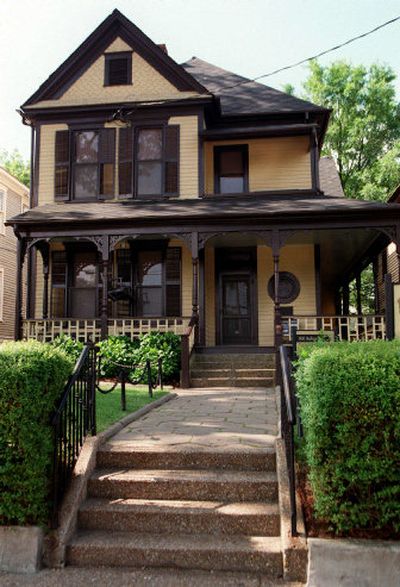Historic Atlanta avenue getting a second chance

ATLANTA – Tony Franklin is a skinny figure in a big blue coat, a walking testament to Martin Luther King Jr.’s unfinished war on poverty. He is part of the army of panhandlers who roam Atlanta’s Auburn Avenue, bearing down on the tourists who flock to the civil-rights leader’s grave.
There soon will be 159 new homes on Auburn Avenue, condos that Franklin cannot afford. But he is proud of them nonetheless. He is a black man, and he believes there is something almost sacred about this long-neglected urban thoroughfare that in its heyday was known as “Sweet Auburn.”
“It’s going to be beautiful, man,” Franklin said recently, nodding toward the beams of the partially built condos. “This is a historical street, and yeah, it needs to be rebuilt.”
Fortune magazine once called Auburn Avenue “the richest Negro street in the world.” During the Jim Crow era, it was home to a thriving mix of black-owned businesses, clubs and stores. The owners and patrons hailed from black Atlanta’s moneyed and aspiring classes, and on Sundays they crowded churches presided over by pastors who helped spearhead the civil-rights movement.
But integration, the leaders’ great triumph, scattered the black elite, and Auburn Avenue suffered. For years, tourists who came to view King’s grave – along with his birth home, family church and the nonviolence center founded by his wife – also encountered a street plagued by boarded-up buildings and one of Atlanta’s most intense concentrations of chronically homeless people.
Now change is coming to Auburn Avenue again. After decades of flight from Atlanta’s urban core, people are returning to the central city, attracted by short commutes and the promise of community. They might even return to the commercial stretch of Auburn Avenue, despite its sketchy reputation.
Renaissance Walk at Sweet Auburn is a block-long condominium complex with a pool, gym and 27,000 square feet of retail space.
The driving force behind the condominium project is Big Bethel AME Church, the oldest black congregation in Atlanta and a longtime anchor of Sweet Auburn. Its partner in the project, Integral Group, is a black-owned company best known for replacing traditional public housing with mixed-income apartments.
The church and the developer believe the Auburn Avenue project honors history and social justice. It incorporates the facades of four original businesses on the block and will feature a museum-like space to tout the history of Sweet Auburn. Twenty percent of the homes are being offered at below-market rate.
Big Bethel’s senior pastor, Gregory V. Eason Sr., says his church has ensured that the poor will be included in Sweet Auburn’s future: Big Bethel operates a high-rise housing project in the neighborhood, as well as special housing for recovering addicts. Now it is going after the long-lost business class.
“We do feel that the project will help recover the original spirit of Sweet Auburn Avenue, which, during its heyday, was really the center of African American business in the city of Atlanta,” he said.
The Coca-Cola Co. has donated land for a proposed civil-rights museum near its soon-to-open Coke museum and the glitzy new Georgia Aquarium, about a mile and a half from King’s grave. King’s children and others have argued that the museum should be located on Auburn Avenue.
Atlanta City Councilman Kwanzaa Hall says that wherever the museum goes, Auburn Avenue will need to attract not just tourists but locals to survive as a reinvigorated business district.
Auburn Avenue has waited too long for change, he said. “We can’t afford to waste another moment.”